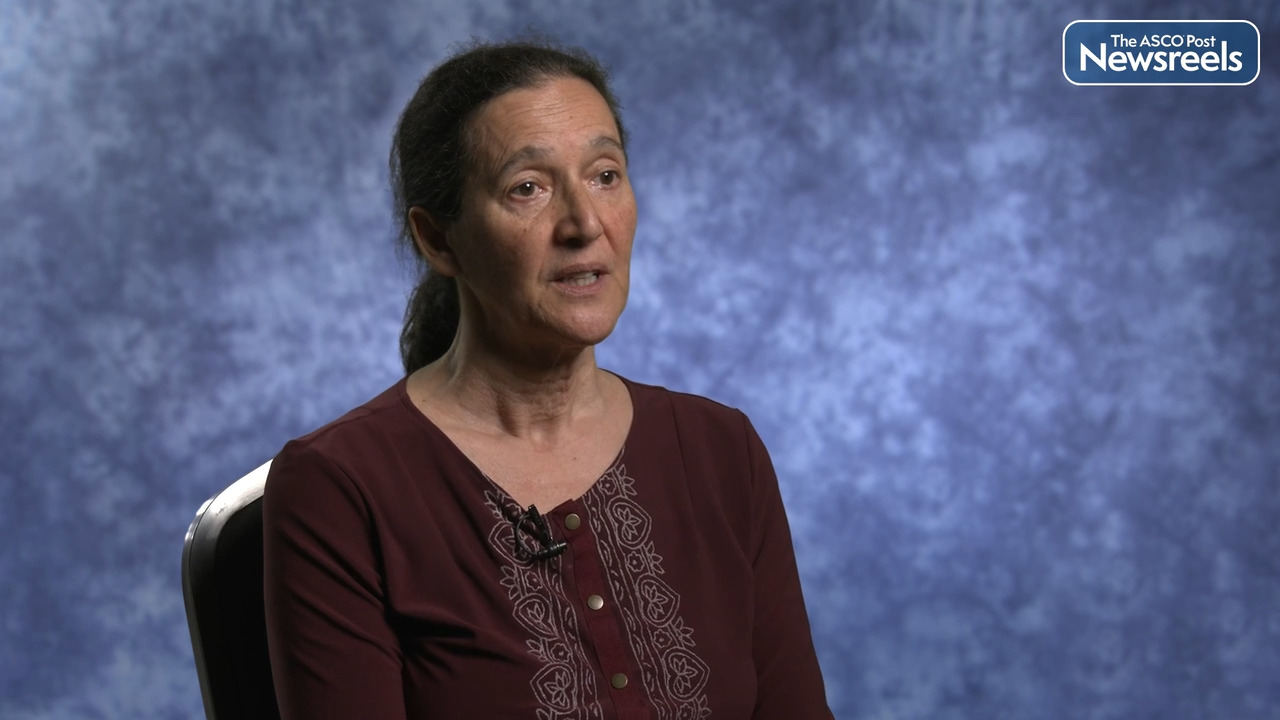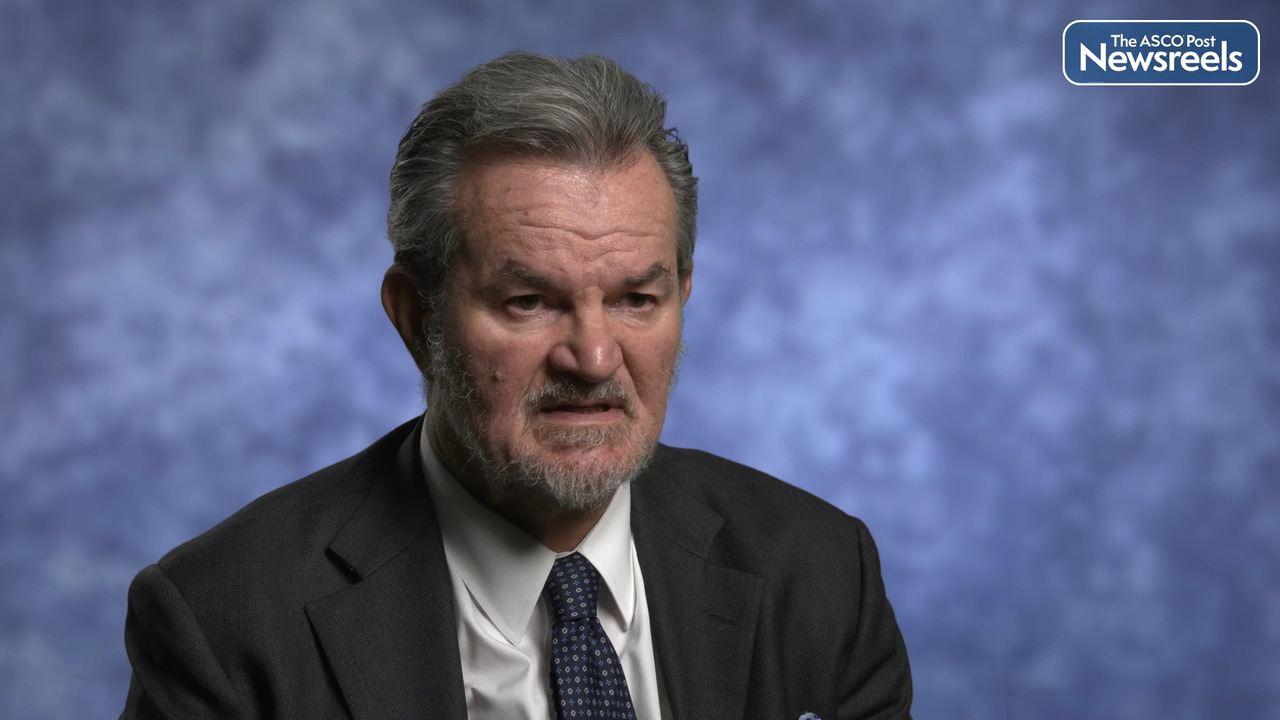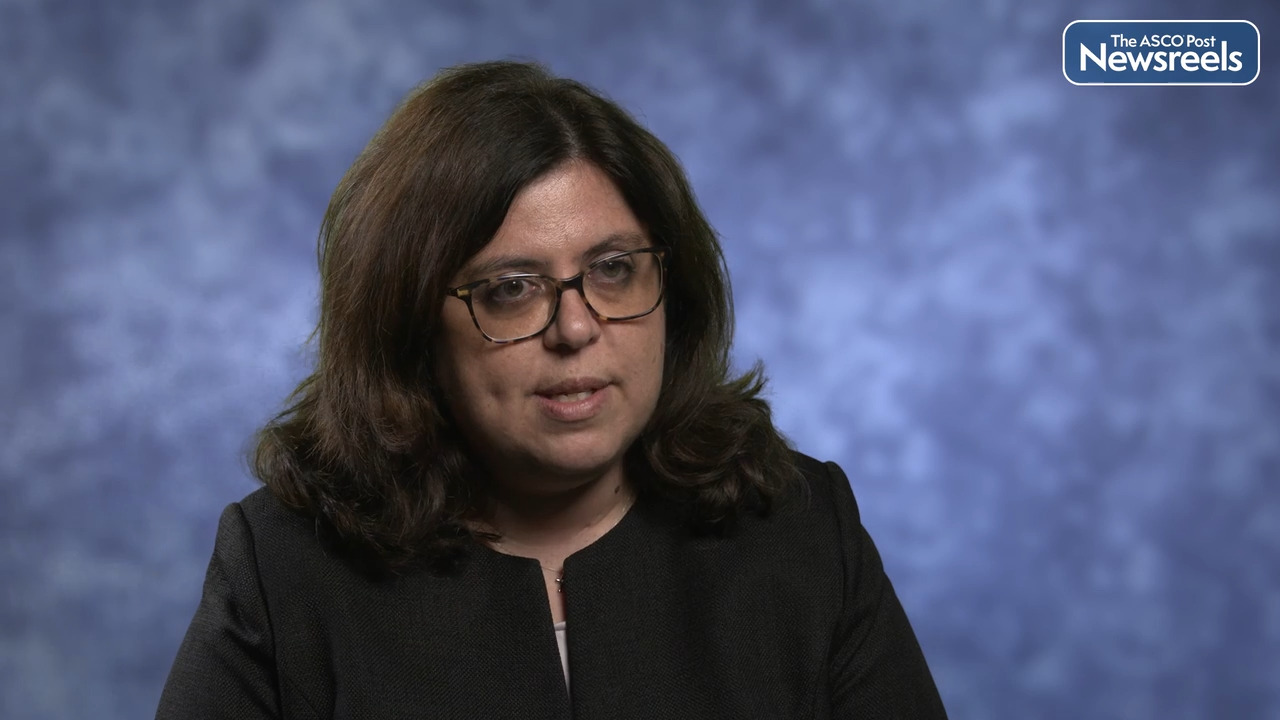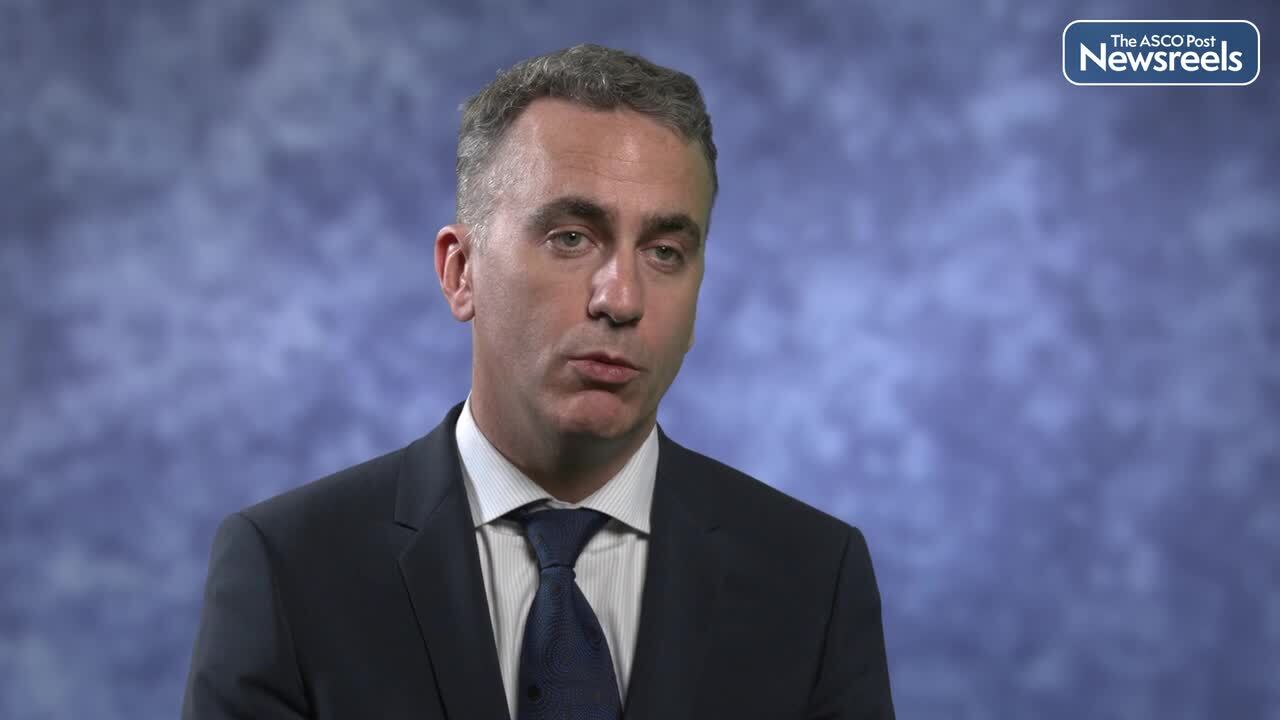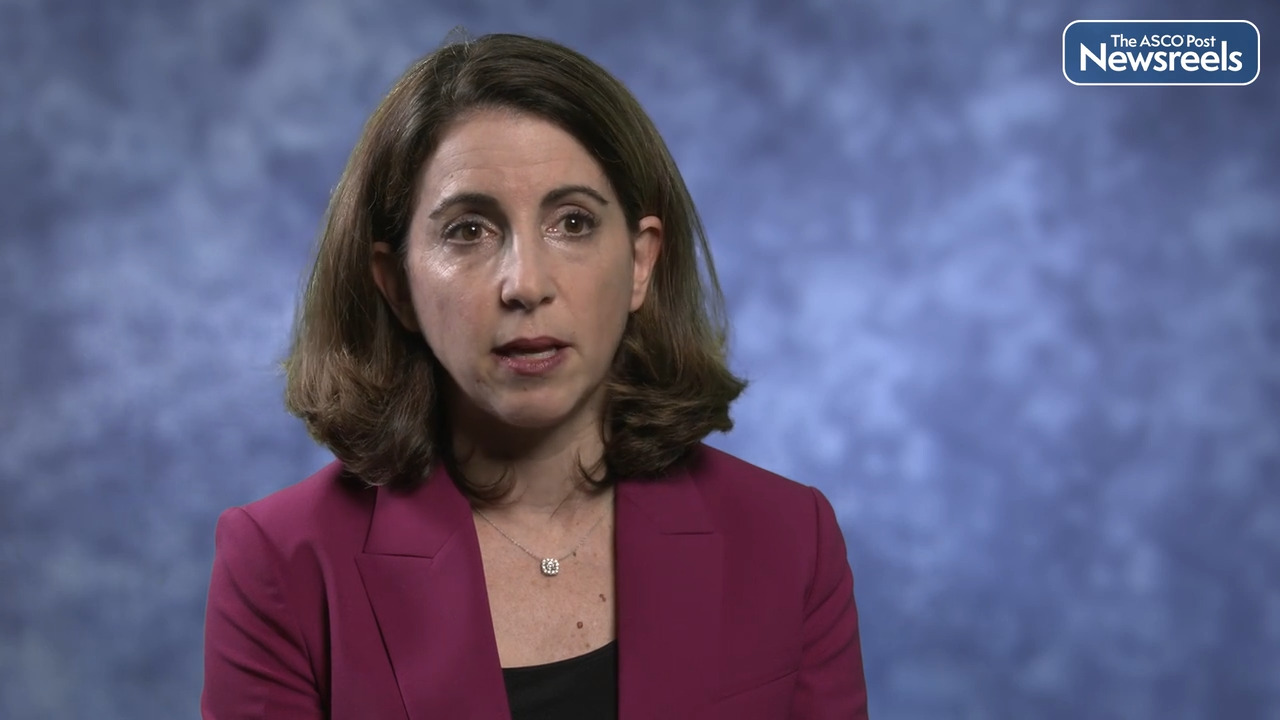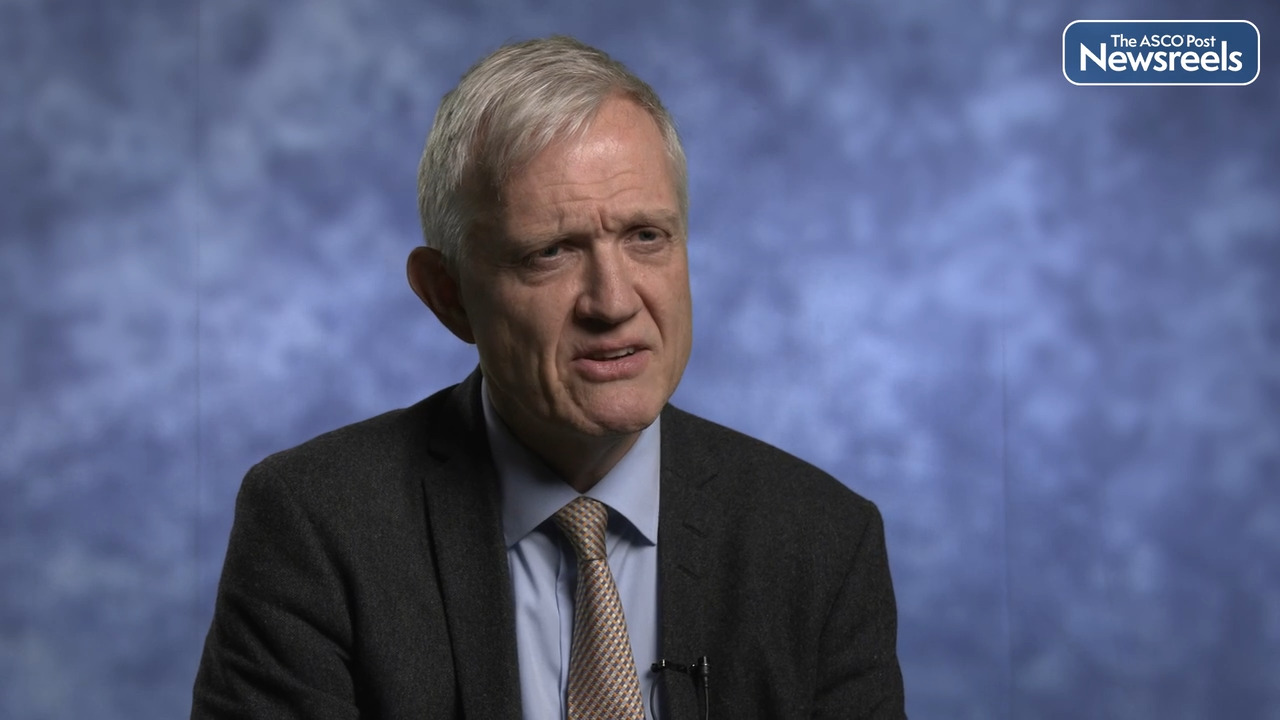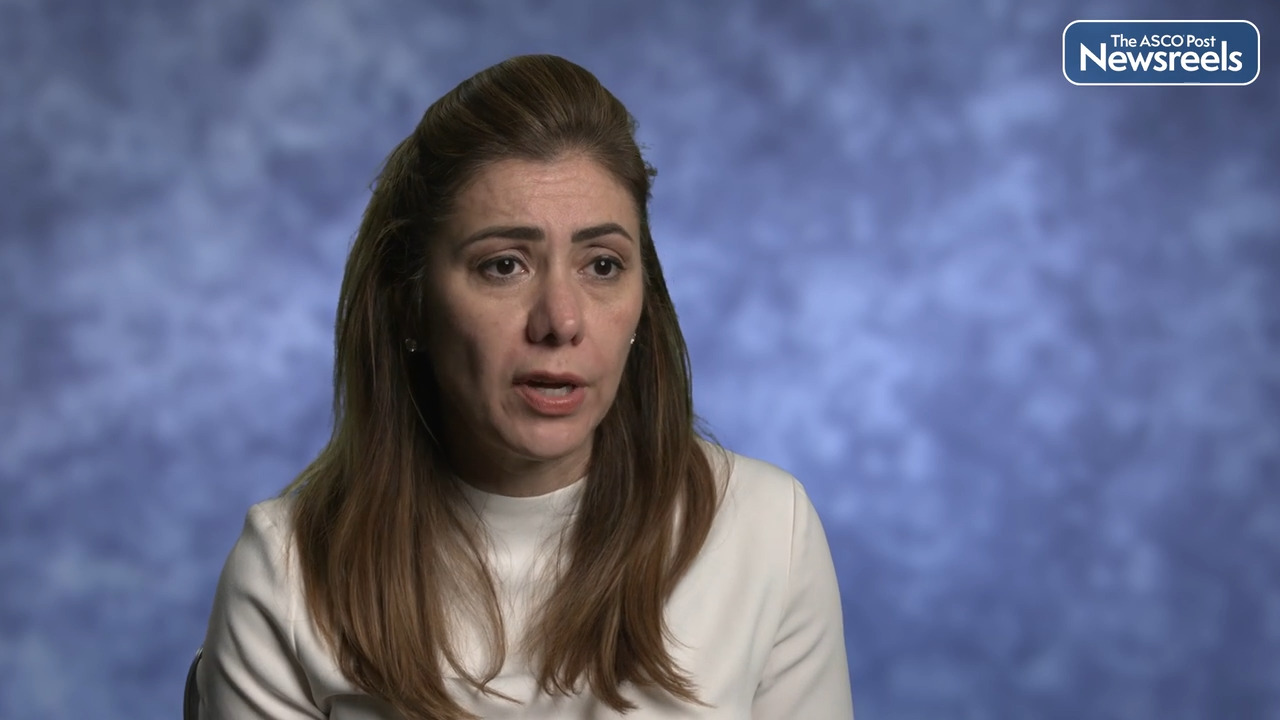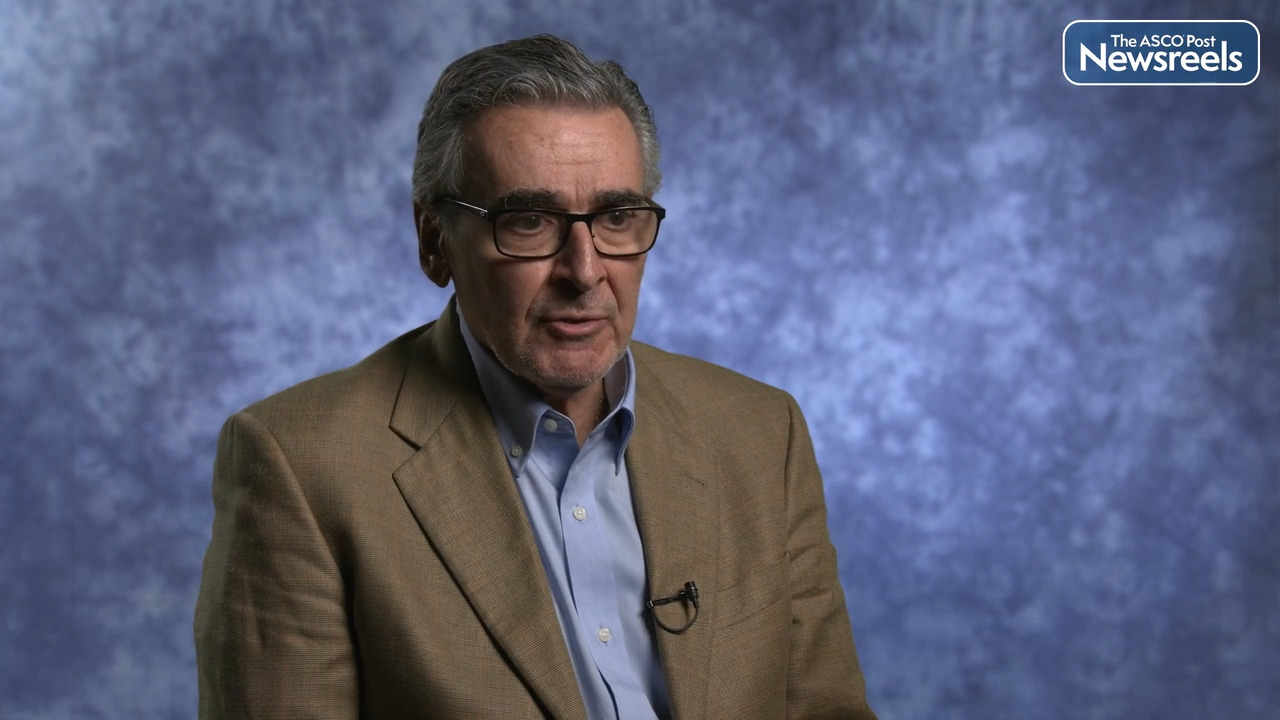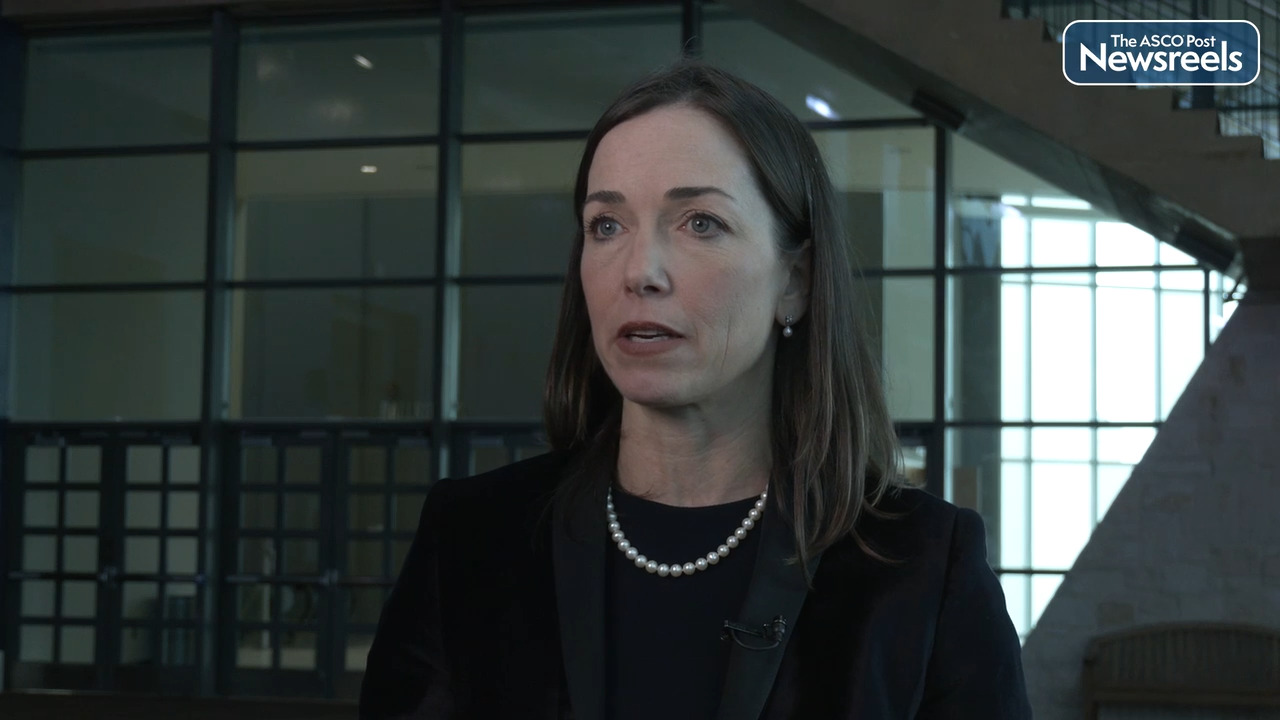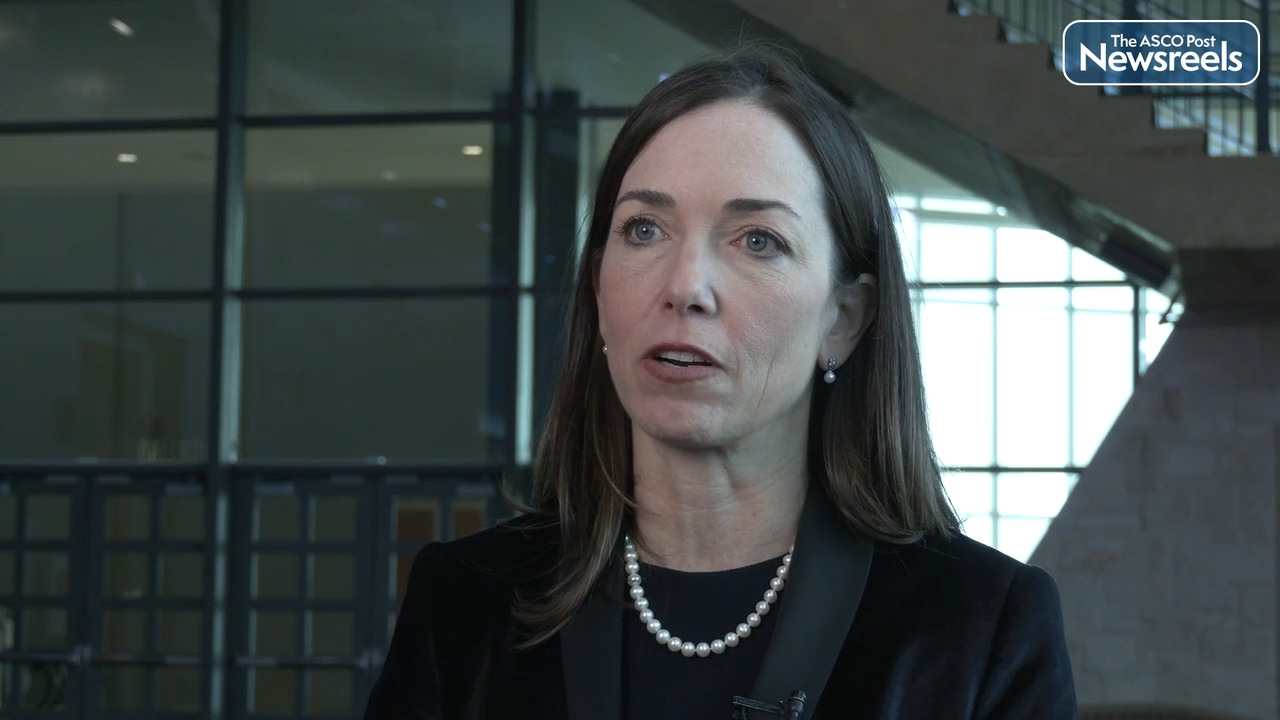Genomic Profile to Identify Candidates for Omission of Local Adjuvant Radiation Among Patients With Breast Cancer
In a study reported in the Journal of Clinical Oncology, Sjöström et al identified a 16-gene signature—Profile for the Omission of Local Adjuvant Radiation, or POLAR—that predicted low likelihood of benefit from adjuvant radiotherapy in preventing locoregional recurrence in patients with...
Immune System B Cells May Help to Predict Treatment Response Among Patients With HER2-Positive Breast Cancer
Researchers have found that measuring the activation of immune system B cells may be more effective than measuring the activation of either T cells or tumor-infiltrating lymphocytes (TILs) in predicting whether patients with HER2-positive breast cancer will respond to treatment. These findings were ...
Risk-Reducing Medication in Patients With High-Risk, ER-Positive Breast Cancer: Benefits and Harms
In a study reported in the Journal of Clinical Oncology, Jayasekera et al identified the benefits and harms of using risk-reducing medication in addition to screening in patients with high-risk, estrogen receptor (ER)-positive breast cancer. As stated by the investigators, “Recent studies,...
EMERALD Trial: Elacestrant vs Standard Endocrine Monotherapy for Advanced Breast Cancer After CDK4/6 Inhibition
Elacestrant—an investigational oral selective estrogen receptor degrader (SERD)—achieved longer progression-free survival vs standard-of-care endocrine monotherapy as second- or third-line therapy in patients with estrogen receptor–positive, HER2-negative advanced or metastatic breast cancer in the ...
Adjuvant Endocrine Therapy and Ovarian Suppression for Premenopausal Patients With Hormone Receptor–Positive Breast Cancer: 12-Year Results of the SOFT Trial
As reported in the Journal of Clinical Oncology by Prudence A. Francis, MD, and colleagues, 12-year results of the phase III SOFT trial show a maintained disease-free survival benefit with the addition of ovarian function suppression to adjuvant tamoxifen in premenopausal patients with hormone...
Risk Prediction Model for Contralateral Breast Cancer in BRCA Carriers With Breast Cancer
In a Chinese study reported in the Journal of Clinical Oncology, Sun et al developed a risk prediction model (BRCA-CRisk) to assess the risk of contralateral breast cancer in patients with breast cancer and BRCA1/2 pathogenic/likely pathogenic variants. Study Details The model was developed in a...
Study Examines ‘Reconstructive Burnout’ Phenomenon: Patients Who Start Breast Reconstruction After Mastectomy but Don't Complete It
Nearly one-fourth of patients with breast cancer who start breast reconstruction after mastectomy don't complete the reconstructive process. The concept of reconstructive burnout was introduced and discussed in a study published by Halani et al in the January issue of Plastic and Reconstructive...
Silicone Film to Prevent Acute Radiation Dermatitis in Patients With Breast Cancer
In a Canadian phase III trial reported in the Journal of Clinical Oncology, Behroozian et al found that the use of Mepitel film—a silicone-based polyurethane film dressing—significantly reduced the incidence of grade 2 or 3 acute radiation dermatitis vs usual care in at-risk women receiving...
Associations Between CDH1 Germline Variants and Hereditary Diffuse Gastric Cancer Syndrome Cancer Phenotypes
In a study reported in The Lancet Oncology, Garcia-Pelaez and colleagues found that presence of germline truncating pathogenic variants or likely pathogenic variants of CDH1 were associated with hereditary diffuse gastric cancer (HDGC) tumor risk syndrome–related cancer phenotypes (lobular breast...
Changing Landscape in the Management of High-Risk Lesions for Breast Cancer
As the population of women at increased risk for breast cancer grows, with an estimated 140,000 high-risk lesions diagnosed each year, “the landscape for surgical excision of high-risk lesions continues to evolve,” Melissa Pilewskie, MD, reported at the 2022 Lynn Sage Breast Cancer Symposium in...
Risk-Reducing Bilateral Mastectomy May Help Women With High-Penetrance Genetic Mutations to Avoid Cancer
“Risk-reducing bilateral mastectomy allows a woman with a high-penetrance breast cancer-causing mutation to avoid an encounter with the experience of breast cancer diagnosis and treatment,” Seema A. Khan, MD, MPH, stated at the 2022 Lynn Sage Breast Cancer Symposium.1 For these women, by avoiding...
Expert Point of View: Neelima Vidula, MD
Commenting on the DESTINY-Breast03 presentation at the 2022 San Antonio Breast Cancer Symposium, Neelima Vidula, MD, a medical oncologist at Mass General Cancer Center, said: “The results highlight the important survival differences of T-DXd [fam-trastuzumab deruxtecan-nxki] compared to T-DM1...
T-DXd Confirmed as Preferred Second-Line Therapy for Metastatic HER2-Positive Breast Cancer
The antibody-drug conjugate fam-trastuzumab deruxtecan-nxki (T-DXd) proved to be superior to the antibody-drug conjugate ado-trastuzumab emtansine (T-DM1), significantly improving progression-free survival and overall survival, in women with unresectable or metastatic HER2-positive breast cancer as ...
How the American Cancer Society Aims to Improve Outcomes in Breast and Cervical Cancers and Reduce Health Disparities
Just days before the publication of the 2022 Annual Report to the Nation on the Status of Cancer on October 27, 2022,1 which showed a continued downward trend in cancer deaths, Karen Knudsen, MBA, PhD, Chief Executive Officer of the American Cancer Society (ACS), joined the First Lady Dr. Jill...
Expert Point of View: Aditya Bardia, MD, MPH
Aditya Bardia, MD, MPH, Director of Breast Cancer Research and Associate Professor at Harvard Medical School, and attending physician at Mass General Cancer Center, Boston, commented on the RIGHT Choice trial. Based on this study, he noted, few patients should be excluded from treatment with...
Ribociclib Plus Endocrine Therapy vs Combination Chemotherapy for Patients With Breast Cancer: Focus on Those in Visceral Crisis
According to findings from the phase II RIGHT Choice trial, many premenopausal patients with metastatic hormone receptor–positive, HER2-negative breast cancer experiencing visceral crisis are best treated with first-line ribociclib plus endocrine therapy rather than with chemotherapy.1 Ribociclib,...
Interim Analysis of Overall Survival in the monarchE Trial
As reported in The Lancet Oncology by Stephen R.D. Johnston, MD, PhD, and colleagues, an interim analysis of overall survival in the phase III monarchE trial has shown no significant benefit with the addition of adjuvant abemaciclib to endocrine therapy in patients with hormone receptor–positive,...
Chemotherapy Dose Intensity and Survival in Older Women With Early-Stage Breast Cancer: Analysis From the HOPE Trial
In an analysis from the HOPE trial reported in the Journal of Clinical Oncology, Mina S. Sedrak, MD, MS, and colleagues found that approximately one-fifth of older women with early-stage breast cancer received a relative dose intensity (RDI) of neoadjuvant/adjuvant chemotherapy that was below...
Sean Khozin, MD, MPH, on Randomized Trials vs Real-World Evidence in Patients With Advanced Cancer
Sean Khozin, MD, MPH, of the Massachusetts Institute of Technology, discusses the “external validity deficits” of randomized clinical trials, which still involve only about 5% of adults with cancer, who may differ in important ways from real-world populations. Dr. Khozin describes the reasons for low levels of participation and advocates for capturing the experience of patients not represented in traditional clinical trials, so real-world data can address these validity deficits.
Updated Subgroup Analyses From the HER2CLIMB Trial in Previously Treated Patients With HER2-Positive Breast Cancer
In updated analyses from the phase III HER2CLIMB trial reported in JAMA Oncology, Nancy U. Lin, MD, and colleagues found that the addition of tucatinib to trastuzumab and capecitabine showed improved outcomes among previously treated patients with HER2-positive breast cancer and baseline brain...
Travel Time for Breast Cancer Screening May Remain Long for Many Patients, New Study Shows
Investigators revealed that the travel time to the nearest mammography facility may be long for a considerable proportion of patients in the United States, particularly affecting more than 50% of patients in the rural areas of 28 states, according to a new study published by Wiese et al in the...
TAILORx Update: 12-Year Recurrence and Survival Outcomes for Patients With Early-Stage Breast Cancer
Long-term recurrence and survival data are now available from the groundbreaking TAILORx trial. With 12 years of follow-up, the updated analysis—reported by Sparano et al at the San Antonio Breast Cancer Symposium (SABCS) 2022 (Abstract GS1-05)—confirms the original findings that chemotherapy may...
Prudence A. Francis, MD, on Premenopausal ER-Positive Breast Cancer: Past, Present, and Future
Prudence A. Francis, MD, of the Peter MacCallum Cancer Centre, discusses an update of the SOFT trial, which showed that adding ovarian function suppression (OFS) to adjuvant tamoxifen for premenopausal women with estrogen receptor (ER)-positive breast cancer reduces the risk of recurrence. OFS enables the use of adjuvant aromatase inhibitors as an alternative to tamoxifen, which can further reduce recurrence of ER-positive, HER2-negative disease. Very young women—those younger than 35 years old—should be considered for OFS, according to Dr. Francis. In addition, tamoxifen alone is appropriate in women with low-risk clinical-pathologic features.
Efficacy of Sacituzumab Govitecan in TROPiCS-02 Trial Not Dependent on Trop-2 Expression
The latest analysis of the TROPiCS-02 breast cancer trial shows that sacituzumab govitecan-hziy is effective in patients with a wide range of Trop-2 expression levels. The findings were reported at the 2022 San Antonio Breast Cancer Symposium by Hope S. Rugo, MD, FASCO, Professor of Medicine and...
MonarchE Update: Benefit of Abemaciclib Increases Over Time
Results of a planned interim overall survival analysis of the phase III monarchE trial offer further support for the addition of abemaciclib to adjuvant endocrine therapy for patients with hormone receptor–positive, HER2-negative, node-positive, high-risk breast cancer, according to Stephen R.D....
Andrea De Censi, MD, on Noninvasive Breast Cancer: 10-Year Results on Low-Dose Tamoxifen
Andrea De Censi, MD, PhD, of Italy’s E.O. Ospedali Galliera, discusses phase III findings showing that low-dose tamoxifen (so-called babytam) given for 3 years still significantly prevents recurrences from noninvasive breast cancer after a median of 7 years from treatment cessation. Babytam at 5 mg/d for 3 years significantly lowered recurrence from noninvasive breast cancer at 10 years without “excess” adverse events (Abstract GS4-08).
Ann H. Partridge, MD, MPH, on Interrupting Breast Cancer Treatment to Attempt Pregnancy
Ann H. Partridge, MD, MPH, of Dana-Farber Cancer Institute, discusses results from the POSITIVE trial, which showed that a temporary interruption of endocrine therapy in women with hormone-responsive breast cancer in order to attempt pregnancy, does not affect short-term disease outcomes. The study found that 74% of women had at least one pregnancy, most (70%) within 2 years. Birth defects were low (2%) and were not clearly associated with treatment exposure. Dr. Partridge explains that these data stress the need to incorporate patient-centered reproductive health care in the treatment and follow-up of young women with breast cancer (Abstract GS4-09).
Mafalda Oliveira, MD, PhD, on Camizestrant vs Fulvestrant in Advanced Breast Cancer: New Phase II Results
Mafalda Oliveira, MD, PhD, of Spain’s Vall d’Hebron University Hospital and Institute of Oncology, discusses findings from the SERENA-2 trial, which compared the next-generation selective estrogen receptor degrader camizestrant to fulvestrant in patients with hormone receptor–positive, HER2-negative breast cancer. Camizestrant, which can be taken as a daily pill (as opposed to fulvestrant, which must be given via injection), improved progression-free survival by up to 42% (Abstract GS3-02).
Survey Finds Sexuality and Fertility Discussions Remain Sidelined Among Young Patients Diagnosed With Breast Cancer
In a new survey, a majority (64%) of patients diagnosed with breast cancer younger than 46 years reported significant impacts to their sexual health, yet 86% of patients reported that their health-care provider was unable to help address sexual health issues, according to findings presented by...
Marleen Kok, MD, PhD, on Early Breast Cancer: A Year in Review
Marleen Kok, MD, PhD, of the Netherlands Cancer Institute, discusses the most important advances in early breast cancer treatment during the past year for patients with triple-negative, HER2-positive, and estrogen receptor–positive disease. Dr. Kok also addresses long-term treatment toxicities and quality of life.
François-Clément Bidard, MD, PhD: Circulating Tumor Cells May Help Improve Outcomes in Metastatic Disease
François-Clément Bidard, MD, PhD, of the Institut Curie, discusses overall survival results from the STIC CTC trial. To guide the choice between chemotherapy and endocrine therapy for patients with metastatic, estrogen receptor–positive/HER2-negative breast cancer, researchers compared circulating tumor cell (CTC) count to physician’s choice of treatment. The data suggest that the CTC count resulted in better long-term outcomes (Abstract GS3-09).
Erica L. Mayer, MD, PhD, on Metastatic Breast Cancer: New Findings on Palbociclib After Prior CDK4/6 Inhibitor and Endocrine Therapy
Erica L. Mayer, MD, PhD, of Dana-Farber Cancer Institute, discusses findings from the PACE study of patients with endocrine- and CDK4/6 inhibitor–pretreated estrogen receptor–positive/HER2-negative metastatic breast cancer who were randomly assigned to fulvestrant alone; fulvestrant and palbociclib; or fulvestrant, palbociclib, and avelumab. Combining palbociclib with fulvestrant beyond disease progression on a prior CDK4/6 inhibitor regimen did not improve progression-free survival compared with fulvestrant alone. A longer progression-free survival when a PD-L1 inhibitor was added to fulvestrant and palbociclib deserves further study. A baseline circulating tumor DNA analysis suggests that the potential benefit of palbociclib after progression on a prior CDK4/6 inhibitor may be influenced by ESR1 or PIK3CA status (Abstract GS3-06).
Aditya Bardia, MD, MPH, on Elacestrant vs Standard-of-Care Endocrine Therapy in ER-Positive, HER2-Negative Breast Cancer
Aditya Bardia, MD, MPH, of Massachusetts General Hospital, discusses results from the phase III EMERALD trial, the first study to demonstrate improved progression-free survival vs standard of care in estrogen receptor (ER)-positive, HER2-negative metastatic breast cancer with one to two prior lines of endocrine treatment, with or without one line of chemotherapy. This finding applied to all patients in the study, including the subgroup with ESR1 mutations (Abstract GS3-01).
Per Karlsson, MD, PhD: New Data on Breast-Conserving Surgery, With or Without Radiotherapy
Per Karlsson, MD, PhD, of Sweden’s University of Gothenburg and the Sahlgrenska Comprehensive Cancer Center, discusses results from the POLAR study, which was a meta-analysis of three clinical trials of breast-conserving surgery with or without radiotherapy. POLAR is the first genomic classifier that appears not only to be prognostic for locoregional recurrence, but also predictive of radiotherapy benefit. Although patients with breast cancer who had a high POLAR score benefited from radiotherapy, patients with a low score did not, and may be candidates for omission of radiotherapy after breast-conserving surgery (Abstract GS4-03).
Elacestrant vs Endocrine Monotherapy in Advanced Breast Cancer: Phase III EMERALD Trial
Elacestrant—an investigational oral selective estrogen receptor degrader (SERD)—achieved longer progression-free survival vs standard-of-care endocrine monotherapy as second- or third-line therapy in patients with estrogen receptor (ER)-positive, HER2-negative, advanced or metastatic breast cancer...
Impact on Cognitive Function of Adding Chemotherapy to Endocrine Therapy for Breast Cancer
Chemotherapy followed by endocrine therapy led to more cancer-related cognitive impairment compared with endocrine therapy alone in patients with hormone receptor–positive, HER2-negative breast cancer at 36 months, according to patient-reported responses. These findings—from a substudy of the phase ...
Genetic Profiling May Identify Patients With Breast Cancer Who Can Safely Omit Radiation Therapy After Breast-Conserving Surgery
Patients with invasive breast cancer who had low scores on an investigational gene molecular signature had similar rates of local recurrence independent of whether they received adjuvant radiation therapy after breast-conserving surgery, according to findings presented by Karlsson et al at the 2022 ...
Breast-Conserving Therapy May Be a Treatment Option for Some Patients With Multiple Ipsilateral Breast Lesions
Patients with multiple tumors in a single breast who underwent a lumpectomy followed by radiation therapy had local recurrence rates comparable to those historically observed in patients with a single tumor, according to new findings presented by Judy C. Boughey, MD, and colleagues at the 2022 San...
Pregnancy Confers ‘Dual Effect’ on Breast Cancer Risk
“Pregnancy confers a dual effect” on breast cancer risk, “with an initial transient increased risk for breast cancer that is followed by long-term protection over time,” Luis Zabala Blanco, Jr, MD, noted in an update on the pathology of pregnancy-associated breast cancer, which was presented at the ...
Joannie M. Ivory, MD, MSPH, and Lisa A. Carey, MD, on PAM50 Subtype and 21-Gene Recurrence Scores in Younger and Black Women With Breast Cancer
Lisa A. Carey, MD, and Joannie M. Ivory, MD, MSPH, both of the University of North Carolina at Chapel Hill, discuss the higher frequency and treatment implications of nonluminal A or high-risk tumors in Black and younger women. In this study, PAM50 and 21-gene assays revealed different demographic patterns by race and age (Abstract PD1-08).
Mariana Chavez-MacGregor, MD, MSc, on Adjuvant Endocrine Therapy and Everolimus in HR-Positive, HER2-Negative Breast Cancer
Mariana Chavez-MacGregor, MD, MSc, of The University of Texas MD Anderson Cancer Center, discusses phase III results from the SWOG S1207 trial which was designed to evaluate the role of adjuvant everolimus in combination with adjuvant endocrine therapy among patients with high-risk, hormone receptor–positive, HER2-negative early-stage breast cancer. Adding everolimus did not improve invasive disease–free or overall survival and was associated with high rates of adverse events (Abstract GS1-07).
Nicholas C. Turner, MD, PhD, on New Data on Capivasertib and Fulvestrant for Advanced Breast Cancer
Nicholas C. Turner, MD, PhD, of London’s Institute of Cancer Research and The Royal Marsden, discusses phase III results from the CAPItello-291 clinical trial, which showed that in patients with hormone receptor–positive, HER2-negative tumors resistant to aromatase inhibitors, adding the investigational AKT inhibitor capivasertib to fulvestrant doubled the median progression-free survival compared with placebo plus fulvestrant (Abstract GS3-04).
Joseph A. Sparano, MD, on Long-Term Breast Cancer Recurrence and Survival Data from TAILORx
Joseph A. Sparano, MD, of the Tisch Cancer Center at Mount Sinai Health System, discusses long-term clinical outcomes data that continue to show many women with early breast cancer can safely forgo chemotherapy, when guided by the 21-gene recurrence score result. The longer follow-up also showed that recurrences of breast cancer continue to occur years after the original diagnosis, although these recurrences were not prevented by chemotherapy use. Racial disparities were not explained by inequities in social determinants of health or treatment adherence, with Black women at higher risk of early recurrence within the first 5 years of diagnosis, but not later recurrence after 5 years (Abstract GS1-05).
Circulating Tumor Cell Count–Driven Treatment Decisions May Improve Long-Term Outcomes for Patients With Metastatic Breast Cancer
The use of circulating tumor cell counts to guide the choice between chemotherapy and endocrine therapy as first-line treatment for patients with metastatic, estrogen receptor–positive, HER2-negative breast cancer provided overall survival benefits compared with physician’s choice of treatment,...
Camizestrant May Be Superior to Fulvestrant in Patients With Hormone Receptor–Positive, HER2-Negative Breast Cancer
The next-generation selective estrogen receptor degrader (SERD) camizestrant improved progression-free survival compared to fulvestrant in patients with hormone receptor–positive, HER2-negative breast cancer, according to results from the phase II SERENA-2 trial presented by Mafalda Oliveira, MD,...
Patients With Breast Cancer Who Interrupted Endocrine Therapy to Pursue Pregnancy Did Not Experience Worse Short-Term Recurrence Rates
Patients with breast cancer who paused their endocrine therapy while attempting to conceive experienced short-term rates of breast cancer recurrence similar to patients with breast cancer who did not pause their therapy for pregnancy—and many of them went on to conceive and deliver healthy babies,...
Adding Capivasertib to Fulvestrant May Improve Progression-Free Survival in Patients With Advanced Hormone Receptor–Positive Breast Cancer
In patients with hormone receptor–positive, HER2-negative breast cancer who are resistant to aromatase inhibitors, the addition of the investigational AKT inhibitor capivasertib to fulvestrant doubled the median progression-free survival compared with placebo plus fulvestrant, according to results...
Pembrolizumab Plus Chemotherapy for Triple-Negative Breast Cancer: Clinical Implications of Residual Cancer Burden
An exploratory analysis of KEYNOTE-522, which established the benefit of neoadjuvant pembrolizumab plus chemotherapy in triple-negative breast cancer, has now provided data to further describe prognosis and possibly guide treatment.1 In the study, presented at the 2022 ASCO Annual Meeting,...
Sara A. Hurvitz, MD: New Findings on Neoadjuvant Trastuzumab Deruxtecan and Anastrozole in Early-Stage Breast Cancer
Sara A. Hurvitz, MD, of the University of California, Los Angeles, Jonsson Comprehensive Cancer Center, discusses phase II results from the TRIO-US B-12 TALENT study, which showed that patients with localized, hormone receptor–positive, HER2-low breast cancer who are treated with fam-trastuzumab deruxtecan-nxki (T-DXd) in the neoadjuvant setting had an overall response rate (ORR) of 68%. When combined with anastrozole, T-DXd led to a 58% ORR. This is the first trial to evaluate T-DXd in HER2-low breast cancer, a potentially curable disease (Abstract GS2-03).
Sara A. Hurvitz, MD, on Updated Survival Results on T-DXd vs T-DM1 in Metastatic Breast Cancer
Sara A. Hurvitz, MD, of the University of California, Los Angeles, Jonsson Comprehensive Cancer Center, discusses phase III findings from the DESTINY-Breast03 study, which showed that second-line treatment with fam-trastuzumab deruxtecan-nxki (T-DXd) led to longer overall survival compared with ado-trastuzumab emtansine (T-DM1) in patients with HER2-positive metastatic breast cancer. Patients treated with T-DXd had a 36% lower risk of death than those treated with T-DM1 (Abstract GS2-02).

